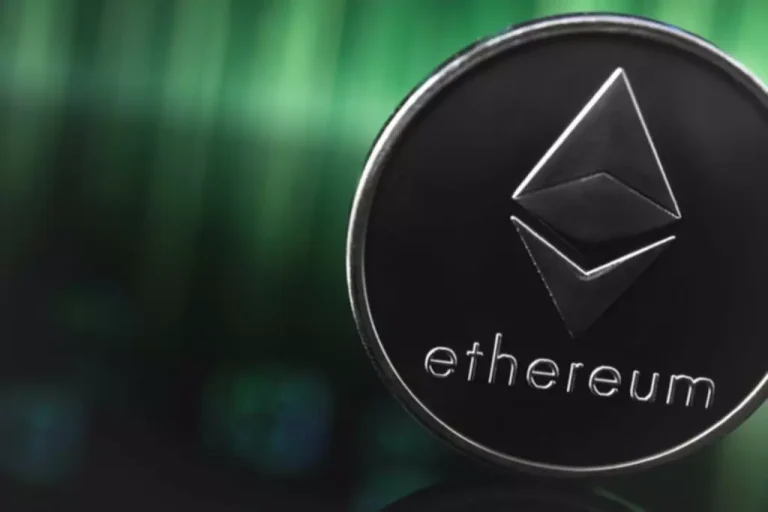For instance, a big buy order seen in a public market might drive up the stock value, reducing the buyer’s benefit. Traders interested in placing large-volume trades submit orders to dark pools through their broker-dealer or financial establishment. These orders can be purchase or promote orders, sometimes involving significant share volumes. These darkish pools purpose to provide fair commerce matching by connecting client orders with orders from other purchasers or exterior liquidity sources.
In Accordance toThe Wall Street Journal, securities regulators have collected greater than $340 million from darkish pool operators since 2011 to settle numerous authorized allegations. Since darkish pool individuals don’t disclose their trading intention to the trade before execution, there is not a order guide seen to the public. Commerce execution details are solely released to the consolidated tape after a delay. Whereas there’s nonetheless a necessity for more regulation, particular rules are already in place.

Sovereign Wealth Funds (swfs)
Trades executed in darkish swimming pools are not instantly reflected in public market costs, probably resulting in a delay in price adjustments. The position of dark pools in the inventory market is multifaceted, influencing both liquidity and buying and selling dynamics. Dark pools contribute considerably to the general market liquidity by facilitating large trades that might in any other case be too pricey or difficult to execute on public exchanges. This performance is essential for sustaining a wholesome and efficient market. Because of their sinister name and lack of transparency, darkish swimming pools are sometimes thought-about by the basic public to be doubtful enterprises.

Their purpose is to match consumer orders with their stock, aiming for a small profit margin on numerous trades. Buying these shares on the dark pool means that ABC Investment Agency’s commerce won’t affect the worth of the stock. It additionally will not alert anyone else about the trade, which implies that speculators will not bounce on board and comply with swimsuit, thereby driving the worth up even higher. Darkish pool operators have additionally been accused of misusing their darkish pool data to trade against their different customers or misrepresenting the pools to their purchasers.
Examples of company broker dark swimming pools embody Instinet, Liquidnet, and ITG Posit, whereas exchange-owned dark pools include these offered by BATS Trading and NYSE Euronext. These dark pools are arrange by giant broker-dealers for their shoppers and can also embrace their own proprietary traders. These dark pools derive their very own prices from order flow, so there is an element of worth discovery. As of the end of December 2022, there were greater than 60 dark pools registered with the Securities and Exchange Commission (SEC).
According to latest information, darkish pools now account for a big proportion of the general buying and selling quantity in the US inventory market. With the advent of supercomputers able to executing algorithmic-based applications over the course of simply milliseconds, high-frequency buying and selling (HFT) has come to dominate daily trading volume. HFT technology allows institutional merchants to execute their orders of multimillion-share blocks ahead of other traders, capitalizing on fractional upticks or downticks in share costs. When subsequent orders are executed, earnings are immediately obtained by HFT merchants who then shut out their positions. This form of legal piracy can happen dozens of occasions a day, reaping large gains for HFT merchants. Darkish pools emerged in the 1980s when the Securities and Exchange Fee (SEC) allowed brokers to transact large blocks of shares.
- Liquidity Finder endeavors to maintain all information displayed on these pages correct and updated however we can’t guarantee that the web page will be error-free or up to date.
- In this example here, we’re in search of those LPs that offer pricing in USD/KRW (Korean Won) but the identical search can be made for any instrument or forex pair.
- Whereas dark swimming pools offer clear advantages, their opaque nature has elevated regulatory scrutiny for honest market practices.
- This shared mannequin ensures individuals have access to liquidity from a wider vary of sources, which enhances buying and selling alternatives and execution reliability.
- Moreover, their prop desks might easily access the firm’s liquidity within the pool.
Whereas they might sound shady, non-public exchanges are fully legal in the Usa and controlled by the SEC. They are private trading platforms within the inventory market, where large institutional buyers can commerce securities anonymously, outside of public exchanges. The use of dark pools permits institutional traders to buy and promote massive blocks of securities without revealing their intentions to the public, which might trigger market volatility. Examples of dark swimming pools embody Barclays LX, Credit Score Suisse Crossfinder, and UBS PIN Different Trading System.
Is It Potential For Individual Traders To Access Dark Pools? 🤔
The opacity of darkish swimming pools can lead to info asymmetry, where certain members have extra data than others. This can unfairly disadvantage some buyers, notably retail traders who might not have access to the identical info as institutional traders operating within darkish swimming pools. Dark swimming pools provide a singular set of advantages that entice large traders and institutional investors. These advantages are crucial in today’s complicated buying and selling environment, where minimizing market influence and sustaining privacy are paramount. For example, Bloomberg LP owns the dark pool Bloomberg Tradebook, which is registered with the SEC. Darkish https://www.xcritical.in/ pools had been initially principally used by institutional investors for block trades involving a lot of securities.
Understanding the regulatory panorama of dark swimming pools is crucial for buyers and market members. Dark pools, being private exchanges or boards for buying and selling securities, operate under a distinct regulatory framework that goals to stability innovation with investor safety. The Securities and Trade Fee (SEC) is the first regulator overseeing these different trading systems. A dark pool is basically a private exchange or discussion board for trading securities. Not Like traditional stock exchanges, dark swimming pools do not publicly disclose the identities of the events involved in trades, nor do they show the costs at which trades are executed. Whereas Initial exchange offering dark swimming pools offer clear benefits, their opaque nature has elevated regulatory scrutiny for truthful market practices.
The Position Of Darkish Pools In The Inventory Market
Dark pools work by permitting patrons and sellers to put orders anonymously. These private exchanges perform in one other way from public inventory markets, offering an alternate buying and selling system for institutional traders in search of anonymity. High-frequency buying and selling (HFT) corporations usually use sophisticated algorithms to research market data and execute trades at incredibly fast speeds. For occasion, if HFT algorithms can infer that a big transaction will doubtless occur in a dark pool, they’ll trade ahead of these transactions in public markets to capitalize on anticipated price actions. This kind of activity, typically dark pool meaning referred to as predatory trading, leverages the information asymmetry created by darkish swimming pools and might lead to vital profits for HFT firms at the expense of different market individuals. Basically, a darkish pool enables buy and promote orders to be executed with out instantly public market disclosure.
Many accused non-public equity markets of enabling high-frequency buying and selling (HFT) to run amok on their markets, resulting in systematic issues for the border market, which led to the market crashing extremely rapidly. All evaluations, analysis, information and assessments of any sort on The Tokenist are compiled using a strict editorial evaluation process by our editorial group. Neither our writers nor our editors receive direct compensation of any kind to publish data on tokenist.com. Our firm, Tokenist Media LLC, is community supported and may receive a small commission if you buy services or products through hyperlinks on our website. Click right here for a full list of our companions and an in-depth explanation on how we receives a commission.
